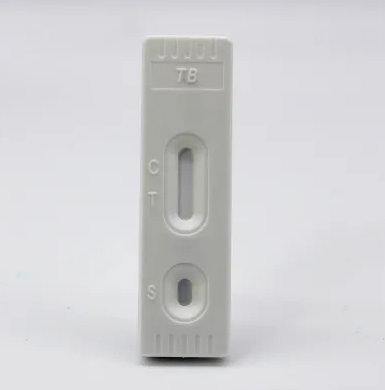HIV-associated TB mortality remains relatively high in the country. Diagnostic delays and limitations of sputum-based diagnostics continue to hinder accurate diagnosis and treatment efforts. HIV-associated TB is harder to diagnose with sputum-based diagnostics due to paucibacillary sputum and extrapulmonary TB being more common, with fewer patients being able to produce sputum.
A recent South African Medical Research Council-funded project entitled ‘Comparative Performance of Urine Lipoarabinomannan and Urine Xpert MTB/RIF Ultra for Diagnosing Tuberculosis in Adult Inpatients With Human Immunodeficiency Virus in East London, South Africa’, aimed to address this by evaluating rapid TB diagnostics accuracy. The study was published in the Clinical Infectious Diseases Journal and funded through the SAMRC’s TB and Human Immunodeficiency Virus Collaborating Centres Programme, with funds received from the National Department of Health and the Wellcome Trust, the South African Research Chairs Initiative of the Department of Science and Technology and National Research Foundation of South Africa and the National Institutes of Health, respectively.
The two most studied rapid TB diagnostics on urine are lateral flow urine lipoarabinomannan (LF-LAM) and Xpert MTB/RIF (Xpert). Urine Xpert was evaluated in the diagnosis of TB in hospitalised adults with HIV, with the Urine Ultra vs LF-LAM among in-patients and out-patients using sputum expert or TB culture as the reference. In this study, the researchers compared the diagnostic performance of urine Ultra and urine LF-LAM in inpatients with HIV and TB symptoms.
“This study was enabled by SAMRC funding and led by clinicians working in the Eastern Cape. The study asked a key question for people living with HIV admitted to the hospital and being investigated for TB. Whether including Xpert Ultra performed on urine could improve clinicians’ ability to make a rapid TB diagnosis. The study clearly demonstrated added benefit from urine Xpert Ultra with this test having a superior yield (68%) to sputum Xpert Ultra (34%) or urine LAM (45%). The problem with sputum is the difficulty obtaining a sample in very ill hospitalised patients; this is overcome by testing urine, which can be obtained in most patients", said Prof Graeime Meintjes.
Study methods & objectives
A cross-sectional diagnostic performance study was conducted with a 12-week follow-up. Amongst hospitalised HIV-positive adults with h ≥1 W4SS (WHO–recommended 4-symptom screen) or with a clinical concern for TB. Two hundred thirty-eight participants were enrolled with a median CD4 count of 76 cells/mm3. The following outcomes were ascertained from a 12-week post-recruitment telephone call, review of hospital and TB clinic notes, and all routine TB laboratory investigations: subsequent TB diagnosis, receipt and timing of initiation of anti-TB therapy, alternative diagnoses, in-hospital mortality, 12-week mortality, TB culture status, and symptom response to therapy.
Study findings & implications
The data suggests that Ultra performs better than LF-LAM on urine, with the advantage of being MTB-specific and identifying rifampicin susceptibility. The primary outcome was the sensitivity of urine Ultra compared with LF-LAM, with microbiological TB (positive TB culture or molecular test, excluding urine Ultra) as the reference. Secondary outcomes included specificity and diagnostic yield, with urine Ultra demonstrating significantly higher sensitivity (25%) and non-significant higher specificity (7%) for microbiological TB compared with LF-LAM.
The use of a combination of urine testing (Ultra and LF-LAM) identified three-quarters of medical inpatients with HIV and definite TB upon admission. The Xpert Ultra diagnostics performs well on urine and is therefore recommended to be included in TB diagnostic algorithms for inpatients with HIV.
Given the high sensitivity and specificity, the study provides evidence for the use of more non-sputum-based tests such as the Ultra and LF-LAM for urine testing for inclusion in TB diagnostic algorithms in clinical practice.
“The SAMRC Office of AIDS and TB Research is very proud to have been one of the sponsors of this study by a world-class team led by Professor Meintjes. This is yet another step forward in constantly improving our ability to diagnose and treat TB in PLHIV”, concluded Prof Fareed Abdullah.
Read the Full publication | HERE

